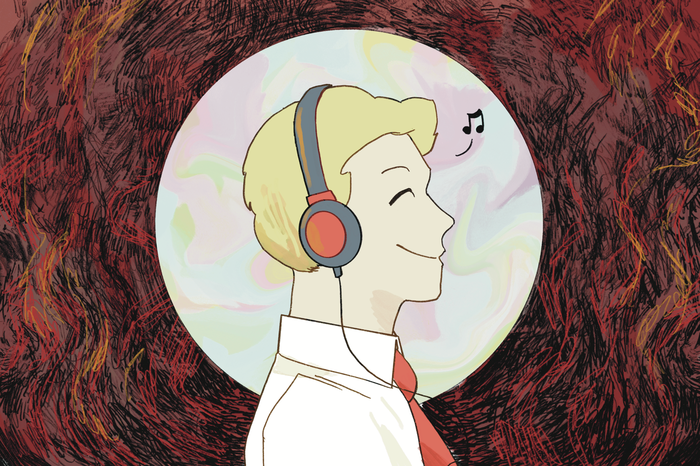Meet the first-year climate justice activist Saoirse Exton
Mariam Al-Badry speaks to Saoirse Exton about activism, apathy, and whether people are inherently good

Name
Saoirse Exton, 19
College/Degree/Year
1st year HSPS at King’s
Where is home?
I’m Irish, from Limerick city
What inspires your activism?
I have in my Instagram bio that I am a climate justice activist, which is true, but slightly different now that I’m at Cambridge. To paraphrase Audre Lorde, there is no such thing as a single-issue because we don’t live single-issue lives. I believe that climate justice means a better world for everyone in it. It means reparations for climate damages, it means the end of economic exploitation of ‘developing’ nations, it means collectively owned energy, community-based development in the hands of the people. It means valuing welfare over profit, valuing the essential intertextuality of global cultures, rather than the homogenisation of one profit-obsessed culture. It means listening once more to the land, revitalising biodiversity alongside native and indigenous languages, learning to live alongside ecology. Absolute climate justice may be impossible to achieve, but it is this image of utopia that keeps me orientated towards what I believe.
Tell me about your work with the UN
“There is no such thing as a single-issue because we don’t live single-issue lives”
I was selected for the UN Secretary General’s Youth Advisory Group on Climate Change in 2022, when I was 17. If I am completely honest, I don’t see the UN as extremely useful for efforts associated with tangible change-making. In fact, the UN has operated as an opposite to movements of decolonisation and attempts to secure human rights for decades. The modern structure of the UN, particularly the Security Council, which features the UK, France, the US, China and Russia as its permanent members and has the power to veto any decision of the General Assembly, renders most decisions that truly threaten global hegemonies irrelevant. In terms of the climate crisis, despite the genuine initiative that the UNFCCC (Framework Convention on Climate Change) has taken to bringing together nations on one single issue, conferences like COP29, which happened at the end of 2024 in Azerbaijan, continually fail everyone except for fossil-fuel companies. This is not to say that activists like myself should entirely abandon the UN – there are definitely mechanisms through which action can be achieved. But it cannot be our only target. To trust in the UN is to trust in a slow-moving bureaucratic process that fails to adequately pay its own staff, let alone legislate for the entirety of the globe.
What would you say to young people who are apathetic about politics?
I think that anyone who is supposedly apathetic about politics simply misrecognises what politics is. When issues like the cost-of-living crisis are so much more immediate, why should anyone care about an environmental crisis that is happening so far away? What needs to happen is reorientation of discussions around things like climate to an understanding of the polycrisis. This refers to the accumulation of multiple crises at once that we are experiencing – whether it’s war in Ukraine that affects oil supplies, driving up the cost of living and demonstrating one of the most dangerous aspects of fossil fuels (namely, that they can be controlled and their supply restricted with much more ease than renewable energy sources). Apathy will crumble when the realisation is made that the companies that ratchet up prices of essential goods for their own greed are the very same ones destroying the planet.
How would you recommend that people begin to get involved in political activism?
I would say that the first and most simple thing anyone can do is to register to vote. Other than this, I think it is also important to find local campaign groups. Changes on an international scale are rarely if ever wrought by individuals. Rather, they are the collection of small, anonymous actions, brought about by groups fighting for their communities. And, sometimes, direct action is vital to change-making.
Want to share your thoughts on this article? Send us a letter to letters@varsity.co.uk or by using this form.
 News / CUP announces funding scheme for under-represented academics19 December 2025
News / CUP announces funding scheme for under-represented academics19 December 2025 News / SU reluctantly registers controversial women’s soc18 December 2025
News / SU reluctantly registers controversial women’s soc18 December 2025 News / Cambridge welcomes UK rejoining the Erasmus scheme20 December 2025
News / Cambridge welcomes UK rejoining the Erasmus scheme20 December 2025 Features / Should I stay or should I go? Cambridge students and alumni reflect on how their memories stay with them15 December 2025
Features / Should I stay or should I go? Cambridge students and alumni reflect on how their memories stay with them15 December 2025 Film & TV / Timothée Chalamet and the era-fication of film marketing21 December 2025
Film & TV / Timothée Chalamet and the era-fication of film marketing21 December 2025










